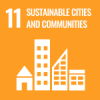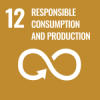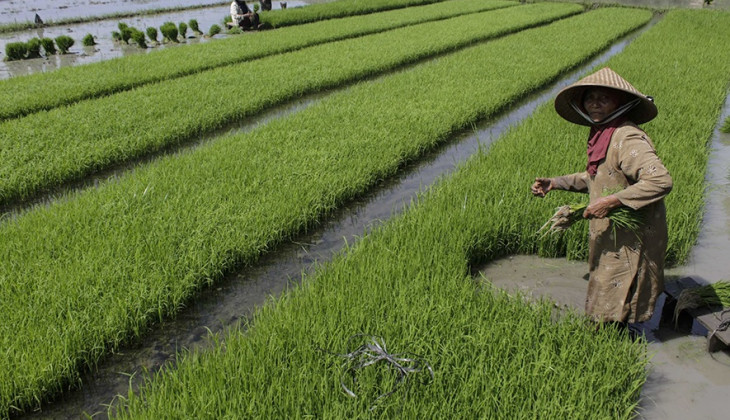Social Development and Welfare Postgraduate Study Program of Faculty of Social and Political Sciences UGM again held Social Development Talks on Saturday (17/10). This 10th event has the theme “Food Security Amid the Covid-19 Pandemic”. The event was held online through the Webex platform and broadcast live through the PSdK/Sosiatri Fisipol UGM Youtube channel.
Subejo, SP., M.Sc., Ph.D., a lecturer at the Faculty of Agriculture UGM who was present as a speaker, stated that this pandemic significantly impacted national food conditions. Some of the impacts are the decrease of production effectiveness and efficiency (both agriculture and MSMEs), the distribution of various food products and ingredients is hindered. There is no price transmission (the price gap for food products and ingredients widens). Besides, the income of farmers and rural communities decreases, and consumers bear the price of products and expensive food.
“Even before the pandemic, our food security already had problems, such as hunger, production, imports, and so on. However, when the pandemic came, the problems became more severe,” said Subejo.
Subejo stated that several strategies could be implemented to overcome these problems, especially problems that arise due to the pandemic. First, relaxation of food production activities for non-red zones while still referring to health protocols. Second, relaxation of food distribution by implementing health protocols. Third, production process assistance, such as machine tools, fertilizers, seeds, pesticides, PPE, counseling, and technical guidance.
Fourth, supporting incentives include price subsidies, land tax exemptions, agricultural insurance, agricultural labor-intensive, social assistance, and others. Eventually, increasing the efficiency of distribution and marketing of food products by applying health protocols and reducing direct contact with application-based information technology.
According to Subejo, the government discussed this issue last April and discussed the prediction of prolonged extreme heat. He said President Jokowi ordered the Ministry of Agriculture, the Ministry of State-Owned Enterprises, and the local government to compose new rice fields to guarantee food production. The order’s accomplishment began in July with a plan to build a food barn in Central Kalimantan. The granary will be built on 148 thousand hectares in two districts, namely Kapuas and Pulang Pisau.
However, Subejo said that the new rice fields had essential prospects for the medium and long term. More realistic programs in the short term (2020-2021) intensify ricefields and dry land. Those programs covered increasing the planting index and harvested area, optimizing yards, optimizing agroforestry, promoting urban farming, and diversifying food based on local raw materials.
However, Subejo still has an optimistic view of this crisis. He assumed this pandemic is an opportunity to revitalize agriculture. He also said that the country could also save money because the import trail was closed. Besides, this pandemic has also stimulated the growth of innovations and new creations in agriculture.
“Many innovations occurred related to agriculture during this pandemic. I hope the government always gives support to them. Hence, I would rather propose the short-term strategy with incentives and other assistance,” Subejo concluded.
Source: https://ugm.ac.id/id/berita/20253-strategi-membangkitkan-ketahanan-pangan-nasional-akibat-pandemi



